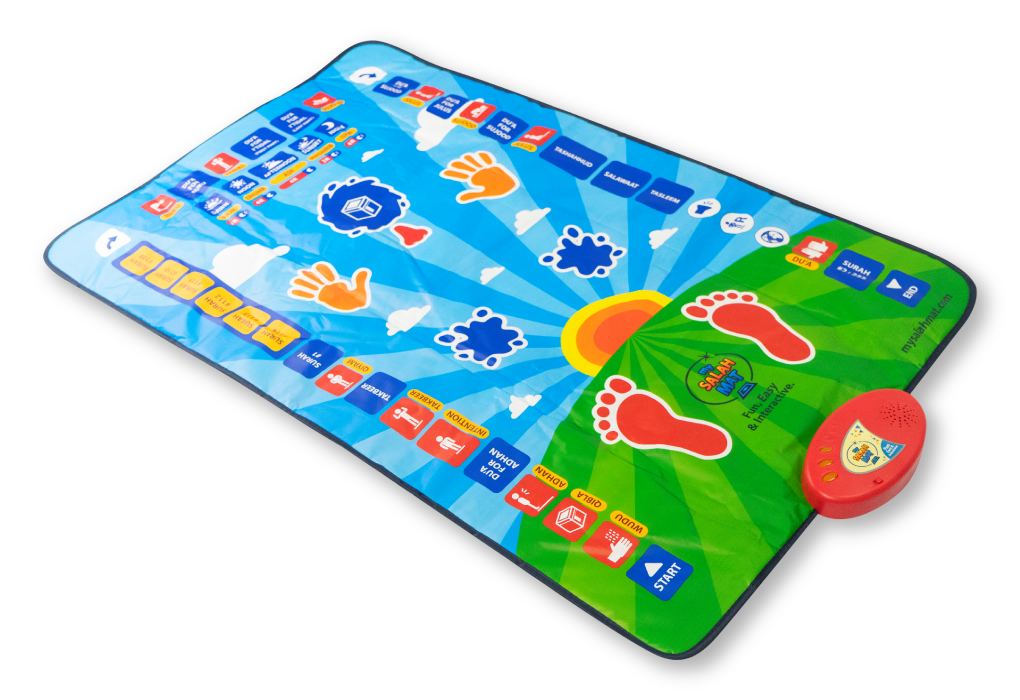How to Communicate Effectively with Your Child: Tips for New Muslim Parents

As a new parent, navigating the world of parenting can often feel like a daunting journey, especially when it comes to communicating effectively with your child. You might find yourself asking, "Why doesn't my child listen to me?" or "How can I ensure our relationship is built on understanding and trust?"
These questions are common, and as a Muslim parent, you also seek to instill Islamic values while fostering a loving and respectful bond with your child. Here are some practical tips to help you communicate better with your child and create a nurturing environment where they feel heard and valued.
1. Understand Your Child’s Perspective
One of the first steps in improving communication with your child is to see things from their perspective. Children, especially young ones, view the world very differently from adults. Their emotions are intense, and their ability to express themselves verbally is still developing. When they act out or seem to ignore you, it’s often not a sign of defiance but a cry for understanding. By empathizing with their feelings and acknowledging their struggles, you demonstrate love and patience, which are key values in Islam.
2. Be Present and Listen Actively
In today's fast-paced world, it's easy to get distracted. Whether it's the constant ping of notifications or the endless list of chores, something always seems to demand our attention. However, when your child is talking to you, it's crucial to be fully present. Put away your phone, make eye contact, and show them that you are listening. Active listening is a powerful tool; it shows your child that they are important and that you value their thoughts and feelings. This approach aligns with the teachings of Prophet Muhammad (PBUH), who was known for giving his undivided attention to those who spoke to him.
3. Use Positive Language and Encouragement
Children respond much better to positive reinforcement than criticism. Instead of saying, "Don't do that," try framing your guidance in a more positive way, like "Let's try doing this instead." Praise them for their efforts, even when the results aren't perfect. This kind of encouragement not only boosts their confidence but also fosters a positive self-image. As Muslim parents, we can draw inspiration from the way Allah (SWT) encourages us through positive affirmations in the Quran, reminding us of our worth and capabilities.
4. Model Good Communication
Children learn by observing the adults around them. If you want your child to communicate respectfully and effectively, it's important to model those behaviors yourself. Speak kindly, listen without interrupting, and handle disagreements with calmness and patience. Your behavior sets a powerful example for your child to emulate. As Allah (SWT) says in the Quran, "Indeed in the Messenger of Allah (Muhammad) you have a good example to follow for him who hopes in (the Meeting with) Allah and the Last Day and remembers Allah much." (Quran 33:21).
5. Integrate Islamic Values into Daily Conversations
Use everyday moments to teach and reinforce Islamic values. Whether it’s reminding your child to say “Bismillah” before eating or explaining the importance of honesty through a story of the Prophet (PBUH), these small conversations make a big impact. They not only strengthen your child’s Islamic identity but also create a shared language of faith and values that can deepen your bond.
6. Incorporate Tools that Facilitate Learning and Communication
At My Salah Mat, we believe that creating a fun, engaging learning environment can significantly enhance a child's connection to their faith and family. Our interactive prayer mats are designed to teach children how to pray in a way that is both educational and enjoyable. By integrating such tools into your child’s daily routine, you not only foster a love for Salah but also open up opportunities for meaningful conversations about the importance of prayer and connecting with Allah (SWT).
7. Practice Patience and Consistency
Communication is not a one-time effort but an ongoing process that requires patience and consistency. Your child might not immediately respond to your efforts, but with time and perseverance, you will see progress. Remember that parenting is a journey, and every step you take towards better communication is a step towards building a stronger, more trusting relationship with your child.
In conclusion, communicating effectively with your child is about more than just talking; it's about connecting. By understanding their perspective, listening actively, using positive language, and incorporating Islamic teachings, you can create a loving and respectful relationship with your child. At My Salah Mat, we’re here to support you in nurturing a strong Islamic foundation for your family, one prayer at a time.














 Liquid error (snippets/@AlternatingContentX line 127): Could not find asset snippets/CustomTexts-.liquid
Liquid error (snippets/@AlternatingContentX line 127): Could not find asset snippets/CustomTexts-.liquid